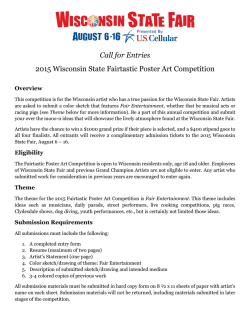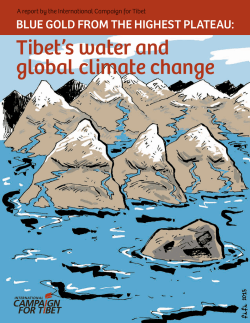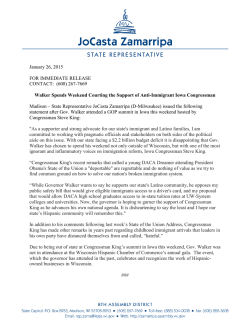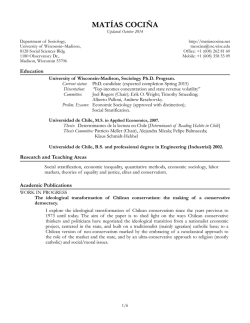
Professor Emeritus Geshe Sopa - University of Wisconsin–Madison
Faculty Document 2534 2 February 2015 University of Wisconsin Madison Memorial Resolution of the Faculty of the University of Wisconsin-Madison On the Death of Professor Emeritus Geshe L. Sopa Lhundub Sopa was born in the Tsang province of western Tibet in 1923. At the age of nine he was ordained as a novice monk in Gaden Chokhar monastery of the Gelugpa school of Mahayana Tibetan Buddhism. At the age of nineteen, Lhundub Sopa joined Sera Jey monastery in Lhasa, Tibet, where he soon distinguished himself as a scholar. In 1959, before Lhundub Sopa had completed his own Geshe degree (Ph.D. equivalent), Sera Jey monastery selected him to be one of the Dalai Lama’s examiners for the Dalai Lama’s Geshe degree. In 1959, following the Chinese occupation of Tibet, Lhundub Sopa, with the Dalai Lama and several thousand others, left Tibet and found refuge in India. In 1962 in Buxador, India, Lhundub Sopa passed his Geshe examinations with highest honors. Almost immediately the Dalai Lama asked Geshe Sopa to accompany and tutor three Tibetan monks who had been selected to study English and learn about American culture in the United States. Geshe Sopa accompanied the monks to a Mongolian Gelugpa monastery in Freewood Acres, New Jersey. In the early 1960s the University of Wisconsin-Madison established a Ph.D. degree in Buddhist Studies – one of the few such degrees in the world. A concentration within the Buddhist Studies program was Tibetan Buddhism. This concentration required years of training in both Literary and Modern Tibetan language and sufficient familiarity with Tibetan Buddhist philosophy and other teachings to produce original dissertation research. In 1967 the University of WisconsinMadison, with Professor Richard Robinson’s recommendation, hired Geshe Sopa to come to the Department of Indian Studies to strengthen the Department’s Buddhist Studies Ph.D. program. Geshe Sopa taught a wide range of courses including First and Second Year Colloquial Tibetan, First and Second Year Literary Tibetan, Introduction to Buddhism, History of Buddhist Thought, Survey of Buddhist Meditational Literature, Tibetan Literature, Seminar in the Studies of Buddhist Literature, Buddhist Epistemology, and Seminar in Buddhist Logic. In 1976 Geshe Sopa became the first Tibetan monk to be tenured in a university in the United States. He was promoted to Full Professor in 1985. In 1997 he retired from the University of WisconsinMadison and became an Emeritus Professor. Geshe Sopa helped train generations of Buddhist scholars and Tibetan translators in the United States. His doctoral students included James Apple, Edward Bastian, James Blumenthal, Jose Carbezon, Paul Donnelly, Ter Ellingson, Artemus Engle, David Germano, Jeffrey Hopkins, Roger Jackson, John Makransky, Beth Newman, John Newman, David Patt, James Robinson, Michael Sweet, Leonard Zwilling, and many others. Several of Geshe Sopa’s students went on to join or found Buddhist studies programs at various colleges and universities in the United States and Canada. In 1995 Geshe Sopa’s students published a volume of essays in his honor titled Tibetan Literature: Studies in Genre. During his career in Wisconsin, Geshe Sopa presented invited lectures throughout the United States (Alabama, Indiana, Michigan, Missouri, Oklahoma, Pennsylvania, and Washington). He also traveled internationally to give invited lectures in Australia, Brazil, Canada, Costa Rica, England, France, Greece, Hong Kong, India, Italy, Japan, Mexico, Nepal, New Zealand, Switzerland, Taiwan, Thailand, Tibet, and Venezuela. (continued) -2Geshe Sopa’s publications included Cutting through Appearances: Practice and Theory of Tibetan Buddhism, co-authored with Jeffrey Hopkins and subsequently translated into German, Italian, and Spanish; Lectures on Tibetan Religious Culture; Wheel of Time: The Kalachakra in Context, co-authored with Roger Jackson and John Newman; Peacock in the Poison Grove: Two Buddhist Texts for Training the Mind, edited by Michael Sweet and Leonard Zwilling; Like a Waking Dream: The Autobiography of Geshe Lhundub Sopa , with Paul Donnelly; and portions of the five-volume Steps on the Path to Enlightenment: A Commentary on the Lamrim Chenmo. Geshe Sopa also published articles in scholarly journals as well as two Film Guides to accompany documentary films on Tibetan Buddhism produced by the University of Wisconsin’s Center for South Asia. In the 1970s a group of students and Buddhist practitioners began meeting in Geshe Sopa’s Madison home to learn about Buddhism outside a formal academic setting. Shortly thereafter Geshe Sopa established what was to become Deer Park Buddhist Center and Monastery, one of the foremost Tibetan Buddhist Centers in the West. In 1981 Deer Park Buddhist Center bought a piece of land in Oregon, Wisconsin, a few miles south of Madison, to provide study and worship facilities eventually including two temples and their residential facilities for Tibetan monks and nuns. The Dalai Lama’s first visit to the United States and Wisconsin came at the invitation of Geshe Sopa and the University of Wisconsin-Madison. In 1981 the Dalai Lama visited Oregon, Wisconsin and performed the Kalachakra (“Wheel of Time”) tantra initiation ceremony for the first time outside Tibet and India. At Geshe Sopa’s invitation, the Dalai Lama visited Wisconsin several more times, including receiving an honorary doctoral degree from the University of Wisconsin-Madison in 1989. During the final decades of the 20th century the University of Wisconsin-Madison was known throughout the world as a special place for the scholarly study of Buddhism in the West. Geshe Sopa’s unique personal and academic contributions to Wisconsin’ Buddhist Studies program and to generations of Wisconsin students will long be remembered and treasured. Respectfully submitted by the Memorial Resolution Committee: Joseph W. Elder _________________________________________ UW-Madison Fac Doc 2534 — 2 February 2015
© Copyright 2026



